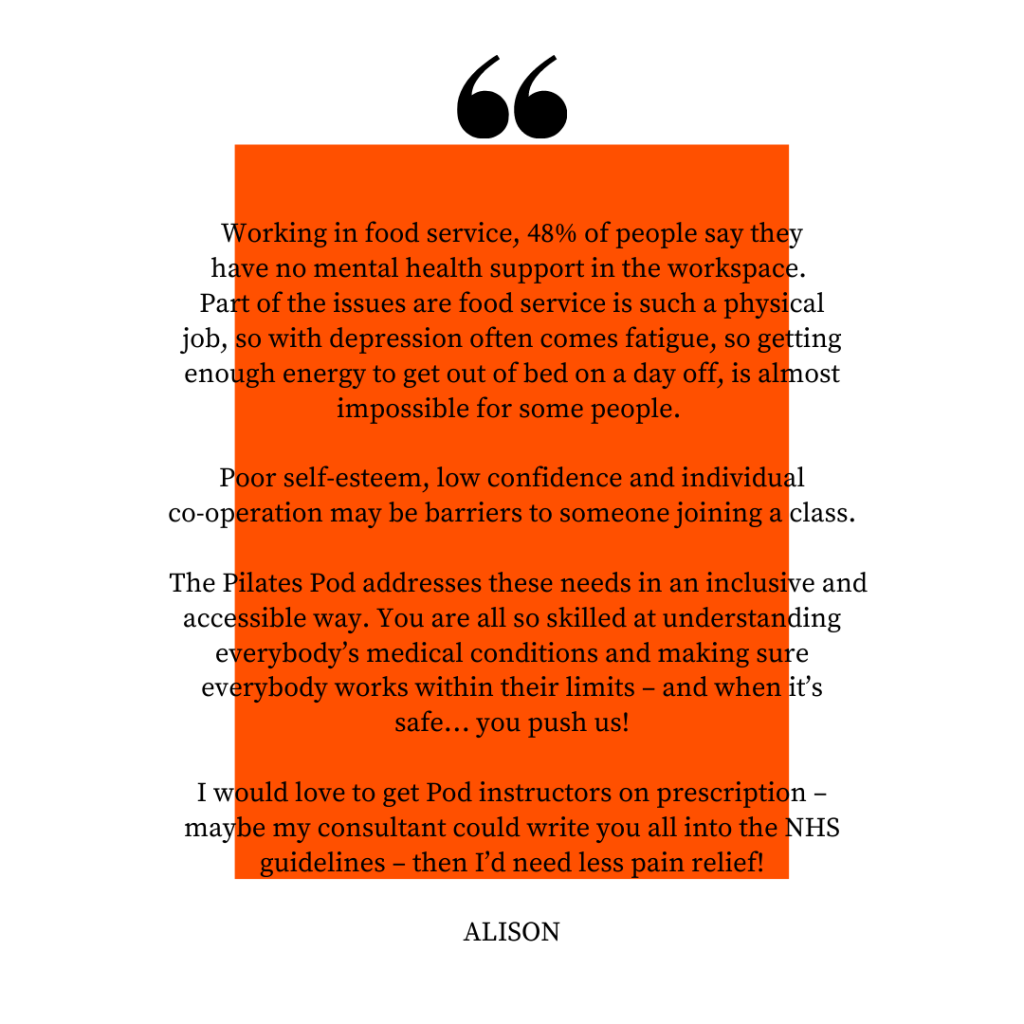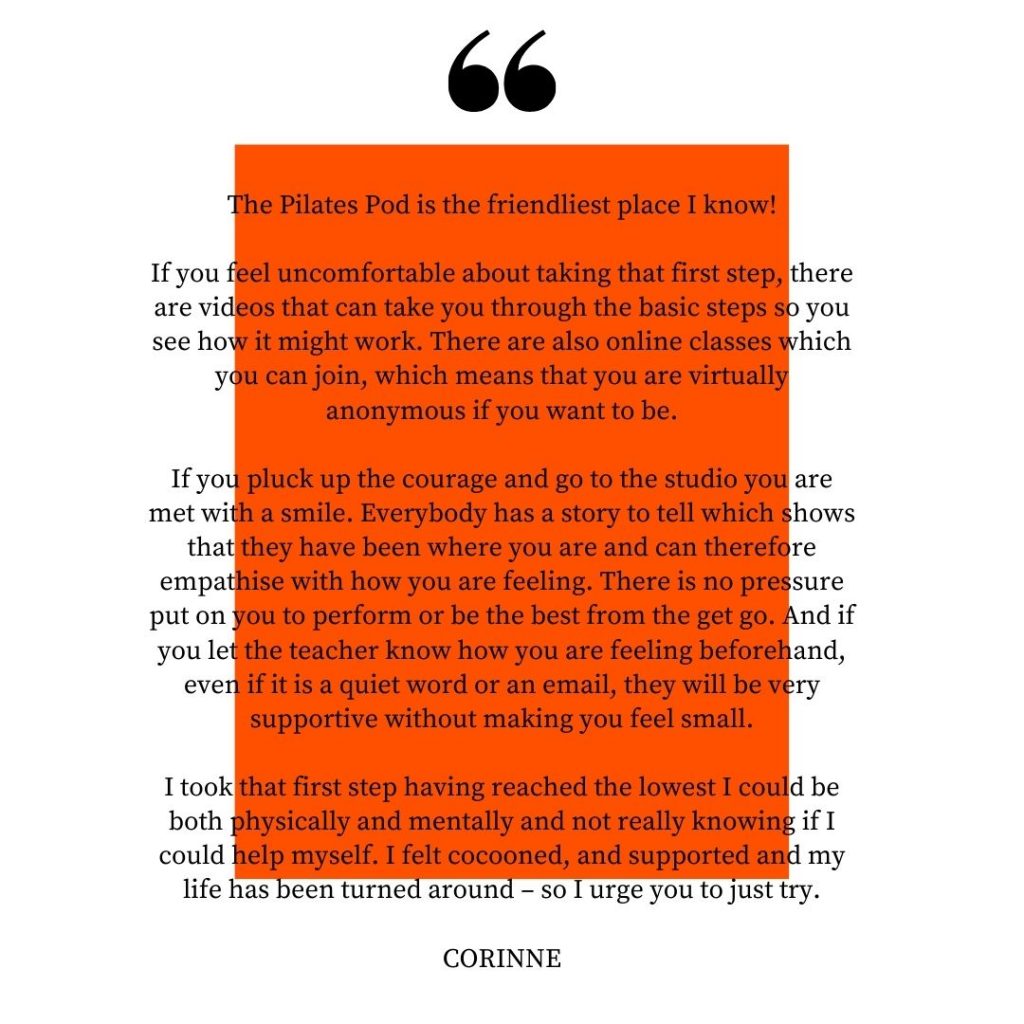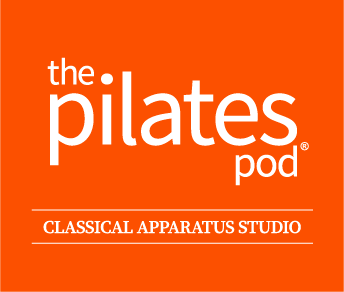
We went into lockdown with worries of physical health, but now after 15 months of isolation, touch deprivation, and social contact, we’re coming out of lockdown with a need more than ever to help protect and restore good mental wellbeing.
According to Mind, the number of adults experiencing depressive symptoms rose from one in ten before the pandemic to one in five now. In young people, two in three (68 per cent) said their mental health got worse during lockdown, compared to three in five (60 per cent) adults.
Exercise is still the number 1 recommendation from doctors in helping anxiety and depression.
I would love to get it (The Pilates Pod) on prescription. Maybe my consultant could write you all into the NHS!
Alison.
Here’s just some of the reported client benefits of doing Pilates on your mental wellbeing:
- Feeling more energetic throughout the day
- Improved quality of sleep at night
- An enormous sense of wellbeing, a mood booster and feeling more relaxed and positive about self, life and the world around you.
- A coping mechanism
- Sharper concentration, focus and memory
- A starting block to help you start saying yes to other things and making healthier choices.
- Awareness of breath & increased blood flow
- Increase self control – physical strength
- Connection through touch – especially classical Pilates is very assisted hands on support.
- Community – making friends, being with people.
Pilates has helped me through some of the toughest times in my personal life. It has been a form of meditation where I have forgotten about the world for an hour a week. It’s been my happy place!
Many of us over lockdown have found we have put on a few extra pounds or our bodies are feeling more clunky and stiff than we’d like. Now the world is opening up again, it can feel daunting to get get back into a regular exercise routine. It’s perfectly ok if you’re feeling a bit apprehensive, worried you won’t be able to do the moves anymore, having insecurities over the way your body feels.
We’ve got ya! Try to think of the internal body. How does the internal body move, create shapes with that rather than trying to “do” the exercise. Find a supportive network of teachers and fitness friends that will coach you and be a champion in your corner. And remember, no one is ever looking at you, they are all so busy worrying you are looking at them! So jump back on the horse, go more often not less, get the endorphin highs again and you’ll be soaring in no time.


Research has proven even modest amounts of exercise can help, so you don’t need to be a real gym bunny.
No matter your age or fitness level, you can learn to use exercise as a powerful tool to deal with mental health problems, improve your energy and outlook, and get more out of life.
According to research however, too much exercise can actually hinder your mental health wellbeing. Many who are addicted to exercise are commended for their dedication or their appearance by friends, family, coaches, colleagues, and the media. This validation and attention only reinforces the efforts of the exercise-addicted. But often this addiction stems from an unhealthy mindset. It isn’t healthy to eat fatty foods all day, sit around a lot and smoke, but neither is believing that the only way to be accepted, liked and successful is to constantly exercise and restrict your food intake.
People who are addicted to exercise may also have a second or a third addiction such as nicotine, alcohol, drugs, work, food, or sex.
Exercise it seems then really can help mental wellbeing, inspire you and motivate you to lead a happier healthier life. But you need to find your healthy mindset balance too!
If you’re new to Pilates and want to try it out, contact us or check out The Pilates Pod online.
